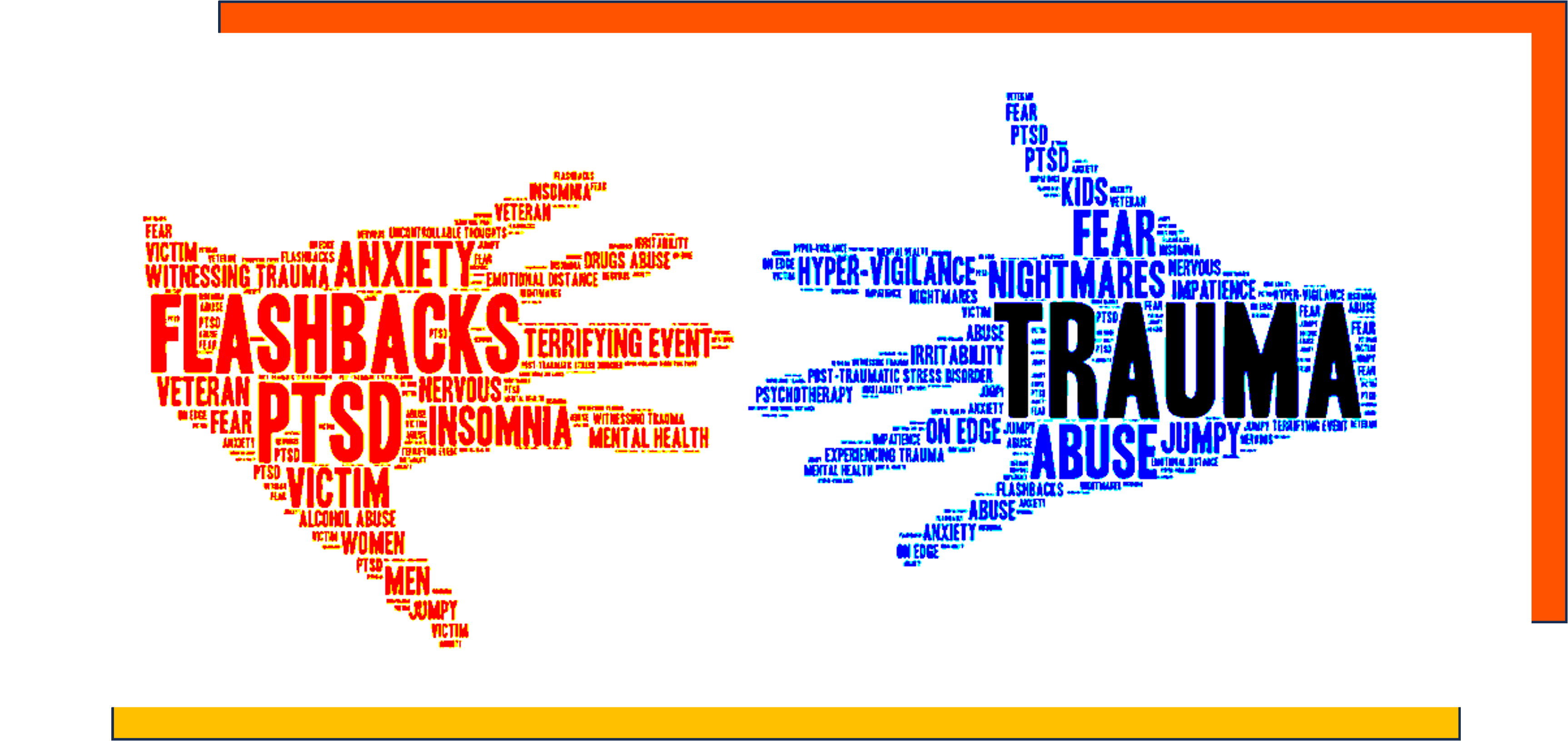A review of literature on the therapeutic use of music with military populations experiencing post-traumatic stress disorder
Main Article Content
Abstract
Background: Post-traumatic stress disorder (PTSD) is frequent among military populations. Symptoms range from physical to behavioural, and emotional difficulties. Loneliness and feeling misunderstood are common among military personnel, particularly veterans. Service members returning from duty often experience a lack of support and this predisposes them to an increased risk for suicide. Music can be therapeutically used with military populations through a range of methods, especially in mental health settings. Participating in music can be a meaningful occupation for many but there is a scarcity of literature on the therapeutic use of music in occupational therapy.
Objectives: The purpose of this literature review was to synthesize current qualitative evidence on the perceptions and experiences of the military population who engage in music therapy.
Materials and methods: A scoping review was conducted following the Preferred Reporting Items for Systematic Reviews and Meta-Analysis extension for Scoping Reviews (PRISMA-ScR) checklist guidelines. Varied databases were searched to retrieve qualitative papers on the lived experiences of the therapeutic use of music among people in the military published between January 2012 and December 2022. Following the quality appraisal, data from the included papers were collated in a data abstraction form before being synthesized thematically.
Results: Seven studies met the inclusion criteria and were included in this scoping review. Three themes were identified: emotional regulation, engaging with others, and mental health stigma. Therapeutic use of music was found to be beneficial and service members expressed that they have managed to overcome mental health challenges, find new connections, and engage with others. However ethical challenges and the delivery of therapeutic use of music must be carefully monitored.
Conclusion: Overall, the therapeutic use of music within military populations with PTSD is perceived to be beneficial and worth continuing with however, careful monitoring during treatments should be a priority to prevent outbursts, relapse, or aggressive behaviours. Combining occupational therapy and music therapy could maximize the benefits of music to people with mental health conditions.
Article Details

This work is licensed under a Creative Commons Attribution-NonCommercial-NoDerivatives 4.0 International License.
Personal views expressed by the contributors in their articles are not necessarily those of the Journal of Associated Medical Sciences, Faculty of Associated Medical Sciences, Chiang Mai University.
References
1, Hunter, S. R. Drawing soldiers out of post-traumatic stress disorder. Mil. Med. Res. 2019; 6(1). doi: 10.1186/s40779-019-0195-8
Belfiglio, V. Post-Traumatic Stress Disorder and Acute Stress Disorder in the Roman Army: Lessons for Modern Armies. BMMR. 2015; 18(3): 1-17. doi: 10.5455/ bmmr.180013
Bradt, J., Biondo, J. and Vaudreuil, R. Songs created by military service members in music therapy: A retrospective analysis. Arts Psychother. 2019; 62: 19- 27. doi: 10.1016/j.aip.2018.11.004
Wilson, G., Hill, M. and Kiernan, M. D. Loneliness and social isolation of military veterans: systematic narrative review. Occup. Med. 2015; 68(9): 600-9.
Story, K. M. and Beck, B. D., 2017. Guided Imagery and Music with female military veterans: An intervention development study. Arts Psychother. 2017; 55: 93-102.
Wehrman, A. The Founding Father Who Healed a Wounded Nation. J Am Hist. 2020; 107(3): 740-1. doi: 10.1093/jahist/jaaa374
Lightstone, A. J., Bailey, S. K. and Voros, P. Collaborative music therapy via remote video technology to reduce a veteran’s symptoms of severe, chronic PTSD. Arts & Health. 2015; 7(2): 123-36. doi: 10.1080/17533015.2015.1019895
Creek, J., Bryant, W., Fieldhouse, J., Bannigan, K. and Lougher, L. Creek’s Occupational Therapy and Mental Health. 5th Ed. Edinburgh: Churchill Livingstone; 2014
Vetro-Kalseth, D., Vaudreuil, R. and Segall, L. E. Treatment description and case series report of a phased music therapy group to support Veteran reintegration. Mil Psychol. 2021; 33(6): 446-52. doi: 10.1080/08995605.2021.1962194
Page, M. J., McKenzie, J. E., Bossuyt, P. M., Boutron, I., Hoffmann, T. C., Mulrow, C. D., Shamseer, L., Tetzlaff, J. M., Akl, E. A., Brennan, S. E., Chou, R., Glanville, J., Grimshaw, J. M., Hróbjartsson, A., Lalu, M. M., Li, T., Loder, E. W., Mayo-Wilson, E., McDonald, S. and McGuinness, L. A. The PRISMA 2020 statement: an Updated Guideline for Reporting Systematic Reviews. Br Med J. 2021; 372(71): 71. doi: 10.1136/ bmj.n71
Trico, A. C., Lillie, E., Zarin, W., O’Brien, K. K., Colquhoun, H., Levac, D., et al. PRISMA extension for scoping reviews (PRISMAScR): checklist and explanation. Ann Intern Med. 2018; 169(169): 467- 73. doi.org/10.7326/M18-0850
Critical Appraisal Skills Programme, CASP Checklists [online]. CASP-Critical Appraisal Skills Programme. 2018 Available from: https://casp-uk.net/casp-toolschecklists/
Liebowitz, M., Tucker, M. S., Frontz, M. and Mulholland, S. Participatory choral music as a means of engagement in a veterans’ mental health and addiction treatment setting. Arts & Health. 2015; 7(2): 137-50. doi: 10.1080/17533015.2014.999246
Lauber, D. E., Estes, S., and Sherr, M. Veteran Participation in Operation Song: Exploring Resiliency in a Songwriting Experience. J Veterans Stud. 2022; 8(3): 170-81. doi.org/10.21061/jvs. v8i3. 363
Vaudreuil, R., Bronson, H. and Bradt, J. Bridging the Clinic to Community: Music Performance as Social Transformation for Military Service Members. Front Psychol. 2019; 10: 119. doi: 10.3389/fpsyg. 2019.00119
Pera, S. A., S Van Tonder and Van, D. Ethics in healthcare. Cape Town: Juta. 2018
National Institute for Health and Care Excellence. Recommendations for Post-traumatic stress disorder, guidance. 2018. Available from: https://www.nice.org.uk/guidance/ng116/chapter/Recommendations#recognition-of-post-traumatic-stress-disorder.
Pezzin, L. E., Larson, E. R., Lorber, W., McGinley, E. L. and Dillingham, T. R. Music-instruction intervention for treatment of post-traumatic stress disorder: a randomized pilot study. BMC Psychology. 2018; 6(1): 60. doi: 10.1186/s40359-018-0274-8


